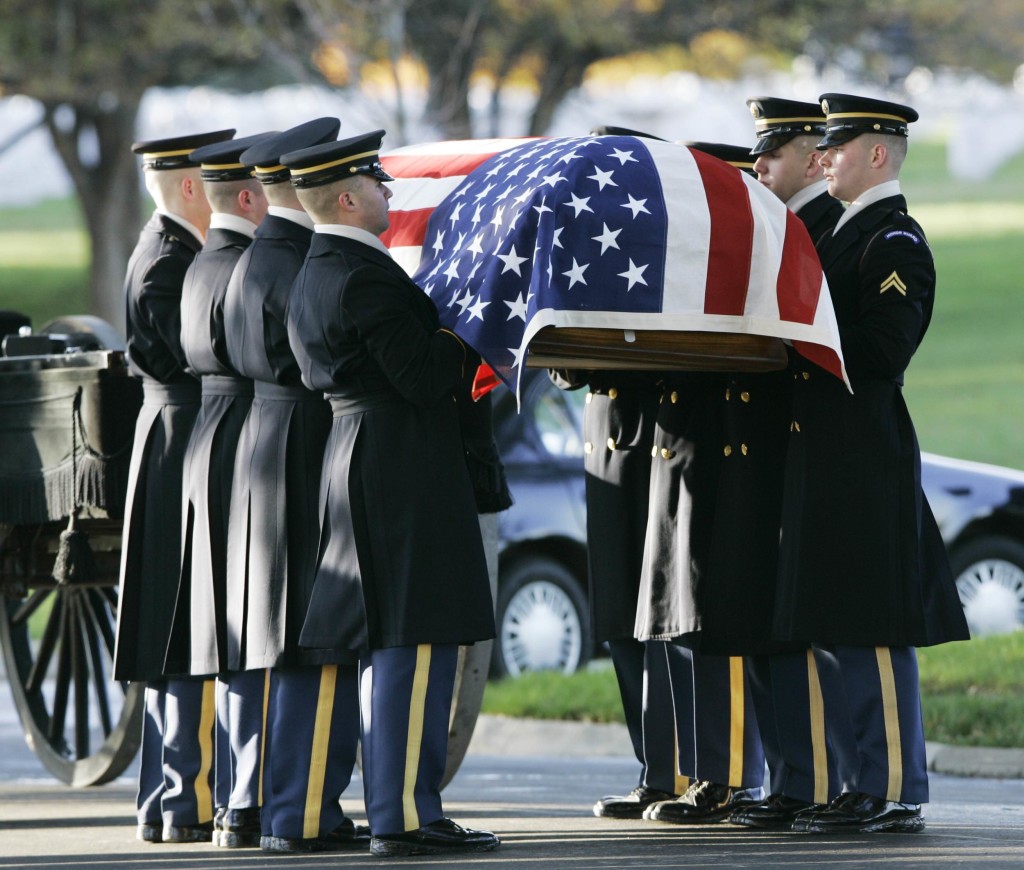New Bill Seeks to Curb Suicide by Military Veterans

February 4, 2015
Share
Clay Hunt was a veteran who, by all accounts, was failed by the government department dedicated to serving him. A Marine sniper who had been wounded in action, Hunt struggled with post-traumatic stress that led to crippling panic attacks.
He struggled to hold down a job. But the Department of Veterans Affairs ranked him only 30 percent disabled — not high enough to get the help he needed. At his VA appointments, he got drugs, but little counseling. He told his mother he felt like a guinea pig.
In 2011, he killed himself. He was 28 years old.
The VA ultimately rated Hunt 100 percent disabled — but the paperwork came through five weeks after he died.
Next week, President Barack Obama is expected to sign a bill to improve VA assistance to veterans in need of mental health care and at risk for suicide. The legislation, named for Hunt, passed unanimously in Congress — it cleared the Senate on Tuesday — in a rare moment of bipartisanship.
“It sends a message to our veterans that our country’s finally serious about tackling suicide,” said Paul Rieckhoff, the chief executive and founder of the Iraq and Afghanistan Veterans of America, (IAVA), a nonprofit advocacy group that helped develop the legislation.
The military has been dealing with an increase in suicides by service members since the two wars began, and the problem has lingered even as combat operations wind down. One-third of veterans said that they had considered taking their own lives since joining the military, according to a 2014 survey of more than 2,000 Iraq and Afghanistan veterans by the IAVA. A full 40 percent said they knew at least one Iraq or Afghanistan veteran who had killed themselves.
“We got a call last night about another suicide in Minnesota,” Rieckhoff said on Wednesday. “And a note about another one that happened last week. It’s just constant, and we feel like we’re losing too many.”
Suicide also extends beyond the wars itself. Many of those who take their lives have never seen combat or even been deployed. According to the latest Defense Department data, 57 percent of service members who took their lives in 2013 had no history of direct combat, raising questions about how the military handles its men and women in mental health crisis.
Related: Why Soldiers Keep Losing to Suicide
The military has been slow to respond. The Defense Department only in recent years began keeping detailed statistics on suicides that is standardized across all branches. And the military’s stay-tough culture has made it difficult for service members to admit they need help. The IAVA veterans survey found that 72 percent cited the stigma of seeking help as the top reason they didn’t get care. Those who haven’t fought alongside their fellow troops can feel even more isolated.
Even when they do seek help, it can be difficult to get it. The VA has struggled to provide care for veterans coming home from the most recent wars, with a current backlog of nearly a quarter-million first-time claims from veterans. Most veterans waited more than 120 days for a response from the VA after filing a disability claim, according to the IAVA survey.
Hunt’s mother, Susan Selke, told Congress last year that her son “constantly” voiced concerns about his care, as he struggled to schedule appointments, see a psychiatrist, and fill prescriptions — frustrations that only exacerbated his post-traumatic stress.
The bill aims to make it easier for veterans to access care. It extends the eligibility period for mental health care at the VA for a year, and sets up a one-stop website for the VA’s mental health services. It also establishes a pilot program to help service members who are transitioning back to civilian life.
One of the most significant components of the bill would introduce a loan repayment program to lure more psychiatrists to work at the VA. The department currently has a staffing shortage, and vets who do get appointments often don’t see the same psychiatrist regularly, making it difficult to continue their care.
The bill would also require independent reviews of the VA mental health and suicide prevention programs to determine whether they’re working, which should bring an important measure of accountability.
It will be a challenge for the cash-strapped VA to find the $22 million it needs to meet the bill’s obligations, and will take time for the independent assessments to determine just what needs to change. Still, the bill was hailed by veterans’ advocate, including Selke, Hunt’s mother, as an important initial measure.
“No veteran should have to wait or go through bureaucratic red tape to get the mental health care they earned during their selfless service to our country,” Selke said in a statement after the bill passed. “While this legislation is not a 100 percent solution, it is a huge step in the right direction.”

Latest Documentaries
Explore
Policies
Teacher Center
Funding for FRONTLINE is provided through the support of PBS viewers and by the Corporation for Public Broadcasting, with major support from Ford Foundation. Additional funding is provided the Abrams Foundation, Park Foundation, John D. and Catherine T. MacArthur Foundation, Heising-Simons Foundation, and the FRONTLINE Trust, with major support from Jon and Jo Ann Hagler on behalf of the Jon L. Hagler Foundation, and additional support from Koo and Patricia Yuen. FRONTLINE is a registered trademark of WGBH Educational Foundation. Web Site Copyright ©1995-2025 WGBH Educational Foundation. PBS is a 501(c)(3) not-for-profit organization.



















